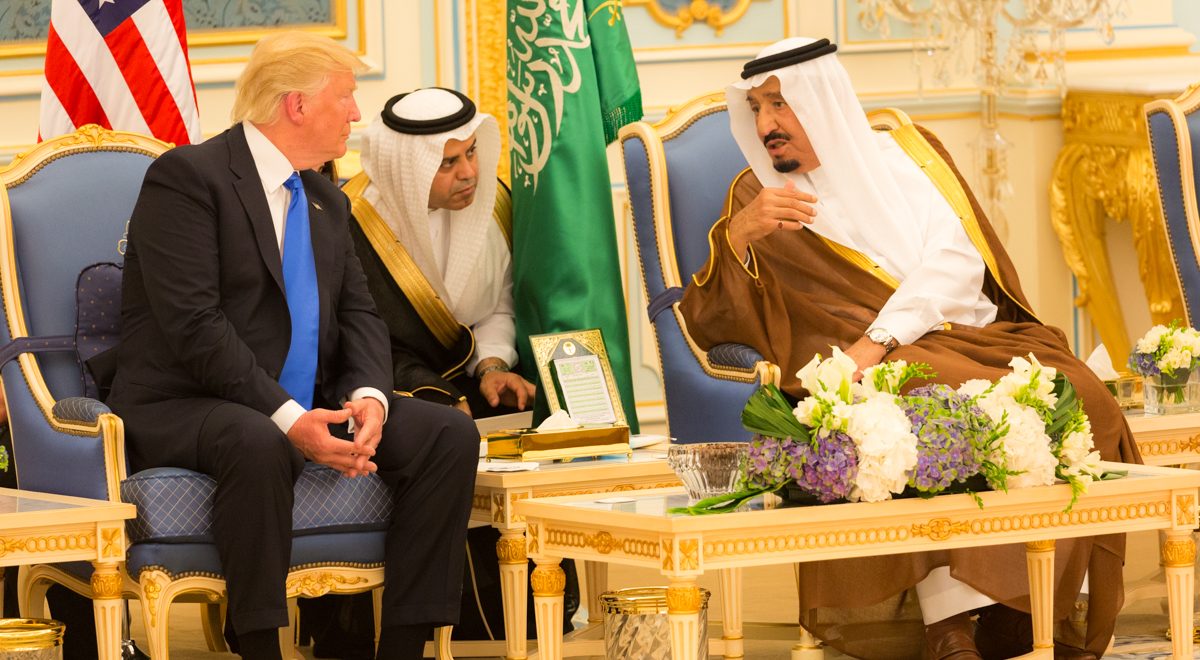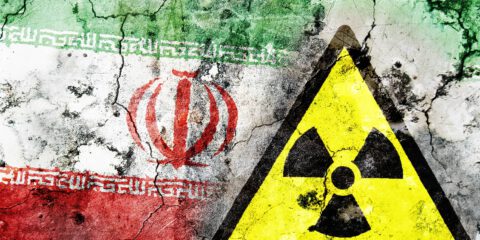Israel should not bear-hug the problematic Saudis, nor fall prey to over-enthusiastic fantasies. Don’t assume that MBS is the answer to Israel’s prayers in facing-down Iran. Don’t expect overt Saudi peace overtures to Israel, and beware inevitable demands for down-payments to the Palestinians as the up-front price for lukewarm Saudi openness to Israel.
Over recent months, we’ve been bombarded with tantalizing tales of Arabia reborn; of Riyadh’s “Arab spring”; of a newly-energized Saudi leadership that is on a (welcome) warpath against Iran; and of a new strategic regional alliance for Israel with the House of Saud.
Halevai. Were it to be so. Let’s hope so. And let’s make good use of the political and strategic opportunities that may be emerging. But Israel should not bear-hug the problematic Saudis, nor fall prey to over-enthusiastic fantasies.
The beginnings of real domestic change in Saudi Arabia can be found in the decision to allow women to drive and a crackdown on massive royal corruption. The signs of a foreign policy reorientation include Saudi offensives against Iranian-backed forces in Yemen and Lebanon and the interviewing in the Saudi press of the IDF Chief-of-Staff.
Speaking last week to The New York Times, the “dynamic and aggressive” de facto new leader of Saudi Arabia, 32-year old Crown Prince Mohammed bin Salman (MBS), even called Iran’s Supreme Leader “the new Hitler of the Middle East.” He warned the West against trying to “appease” the Iranians.
This is all well and good, and I wish MBS every success in his gargantuan agenda.
He reportedly seeks to check the power of extremist Wahabi Islamist clerics; to “restore Islam to its (moderate) origins”; to fix the broken Saudi economy (which is wildly dependent on 10 million foreign workers with few quality jobs for young Saudis); to reform Saudi education (which is radical and retrogressive); to root-out endemic cronyism and money-laundering; to roll-back Iranian regional hegemonic advances; and perhaps to lead positive change in Arab world attitudes towards Israel.
Again, halevai.
But Israel should be cautious because the whole Saudi reform effort is iffy. Moreover, a too-publicly close alliance with Riyadh – even with the impressive MBS – could backfire on Israel.
For all its legendary wealth, Saudi Arabia is a failed state with tribal divisions, zealously-rigid religious leaders, and byzantine family oligarchic enmities – all of which may coalesce to thwart the reforms that MBS is almost single-handedly seeking to implement. I can also imagine the Iranian Supreme Leader (“Hitler”) giving an order to eliminate MBS.
Furthermore, Saudi past behavior encourages deep skepticism about its true determination or ability to confront Iran. The Saudis have never been adept at turning their gazillions of petrodollars into power on the ground. They have no real troops to march across the Middle East. In contrast, Iran has successfully created proxy militias (such Hamas, Hezbollah and the Houtis) and legions of shock-troops (the IRGC Qods force) to conquer other countries.
As the incisive analyst Dr. Jonathan Spyer of the IDC puts it, the scorecard of Saudi-Iranian conflict to date is dismal. In every zone of contention – Lebanon, Syria, Iraq, Yemen, Qatar – the advantage is very clearly with the Iranians. “So far, the Crown Prince’s actions consist of removing the veneer of multiconfessionalism from the Lebanese government and threatening their enemies in Yemen; which are important symbolic steps, but do nothing to provide Riyadh with the hard power it has always lacked.”
Former US ambassador to Israel Daniel B. Shapiro puts it this way: “As a counterweight to Iran, Saudi Arabia has underwhelmed: Plenty of talk, some financing, lots of urging others to fight, but a high degree of passivity when it came to Saudi Arabia’s own contributions.” Shapiro fears that MBS is trying to nudge Israel into shouldering a war with Iran.
(This is a bit rich coming from a representative of the Obama administration, which did everything to undermine Saudi Arabia and promote Iran’s influence in the region, but that’s another story. Shapiro’s comment about Riyadh’s record remains accurate).
Historian Ofir Haivri of the Herzl Institute goes a step further, warning that, for all the reasons enumerated above, the House of Saud is a “dilapidated house of cards that will ultimately collapse,” spilling its hundreds of billions of dollars worth of the most sophisticated American weapons into the Mideast arms market or into the lap of Iran. Such possible “blowback” of weaponry has always been a long-term Israeli concern.
Haivri’s biggest concern is that Israel could soon be required to pay a high price for residing within the supposedly-emerging Saudi-led Sunni coalition. “There will be those who suggest ‘painful concessions,’ whether to the Palestinians or regarding the Golan Heights within the framework of a permanent settlement in Syria, in order to build trust with the Arab world. The eventual collapse of this house of cards will leave Israel yet again holding the joker.”
To this I add that we should remember the long-standing Saudi record of dissimulation. The Saudis always seem to hew to the minimum public relations moves necessary to advance their narrow interests, without every truly committing whole-hog to broader change and certainly not to real peace with Israel.
The Saudis have an old trick: Let loose feeble – but tantalizing – hints about theoretical chances of peace with Israel. It is Saudi sophistry at its best; a ruse that works wonders. Speak vaguely and indirectly about a chance of begrudging ties with Israel, and presto: You’re in the West’s good books! You’re now a peace process “leader” with a diplomatic “initiative” in your name.
This is what then-Crown Prince Abdullah did when the Saudis had a post-9/11 image problem. (Fifteen of the 19 hijackers were Saudis, remember?) So Abdullah nattered to the ever-gullible Tom Friedman of The New York Times about “full normalization” with Israel in exchange for “full withdrawal” from the territories. It sounded pretty good. In a flash, Abdullah transformed the discourse from Saudi involvement in terrorism to Saudi peacemaking. There was no concrete Saudi follow-up. They never put their money where their mouth was.
Today, the same oracle, Tom Friedman, is hawking MBS as a fearless reformer; as someone “who blows my mind”; as someone who, perhaps, will reverse the “virus of antipluralistic, misogynistic Islam”; as someone who will lead an alliance to convincingly confront Iran and perhaps embrace Israel.
Well, again, halevai. But given the source, and the Saudi record, I remain skeptical.
Therefore, Israel should proceed guardedly. Should Israel do everything in its power behind the scenes, with and for the Saudis, to secure real containment of Iran? Of course so, and one assumes that is exactly what Prime Minister Netanyahu is doing.
Should Israel root for MBS’s liberalizing domestic reforms, if they materialize? Indeed!
But excessive enthusiasm is shortsighted. Don’t assume that MBS is the answer to Israel’s prayers in facing-down Iran. Don’t expect overt Saudi peace overtures to Israel, and beware inevitable demands for down-payments to the Palestinians as the up-front price for lukewarm Saudi openness to Israel.
Nor is this the time for Diaspora Jewish leaders to be running on junkets to Riyadh, claiming a role for themselves in “opening the door” towards a Saudi embrace of Israel. Instead, let’s set a higher standard for MBS to meet in terms of recognizing Israel, and in the meantime follow his progress with qualified cheer.
Published in The Jerusalem Post and Israel Hayom, December 1, 2017.
JISS Policy Papers are published through the generosity of the Greg Rosshandler Family.
photo: U.S. President Donald Trump with King Salman, Riyadh, 20 May 2017, Wikimedia Commons, Public Domain.








 - בניית אתרים
- בניית אתרים